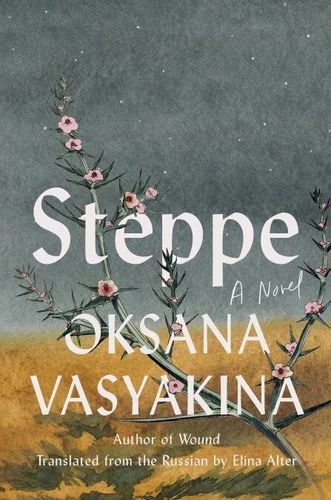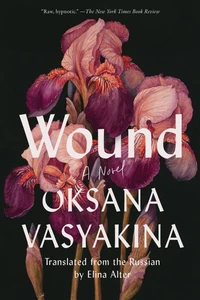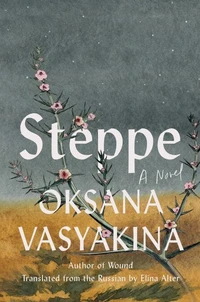A visceral, stirring novel following a queer literature student traveling across Russia with her estranged father, a long haul truck driver secretly dying of AIDS, from the acclaimed author of WoundA decade after her father walks out on her family, the narrator of Steppe, now a literature student, goes on the road with him as he makes deliveries across the vast plains of Russia. She's both drawn to and repulsed by his rugged life as a trucker, eager to understand the person who made her.
But the prematurely aged, embittered man secretly being consumed by AIDS who meets her at the train station has little revelation to offer her yearning heart. As he drives her across desolate landscapes in his freight truck, the narrator tugs on the few threads that make him her family, and reflects on her father's small role in Russia's violent patriarchal structure and the chaos and depravity of the post-Soviet 1990s.
Always humming in the background, the austere beauty and mercurial nature of the steppe reminds her of the contradictions at the heart of their relationship-both natural and forced, intimate and alienated. Oksana Vasyakina's second novel pierces the surface of human relations and reaches into the depths of shame, longing, and grief that lie beneath. In simple, precise prose, she paints a vivid portrait of estrangement and situates it in the broader context of her country's attempts to reckon with its troubled history.
A visceral, stirring novel following a queer literature student traveling across Russia with her estranged father, a long haul truck driver secretly dying of AIDS, from the acclaimed author of WoundA decade after her father walks out on her family, the narrator of Steppe, now a literature student, goes on the road with him as he makes deliveries across the vast plains of Russia. She's both drawn to and repulsed by his rugged life as a trucker, eager to understand the person who made her.
But the prematurely aged, embittered man secretly being consumed by AIDS who meets her at the train station has little revelation to offer her yearning heart. As he drives her across desolate landscapes in his freight truck, the narrator tugs on the few threads that make him her family, and reflects on her father's small role in Russia's violent patriarchal structure and the chaos and depravity of the post-Soviet 1990s.
Always humming in the background, the austere beauty and mercurial nature of the steppe reminds her of the contradictions at the heart of their relationship-both natural and forced, intimate and alienated. Oksana Vasyakina's second novel pierces the surface of human relations and reaches into the depths of shame, longing, and grief that lie beneath. In simple, precise prose, she paints a vivid portrait of estrangement and situates it in the broader context of her country's attempts to reckon with its troubled history.






